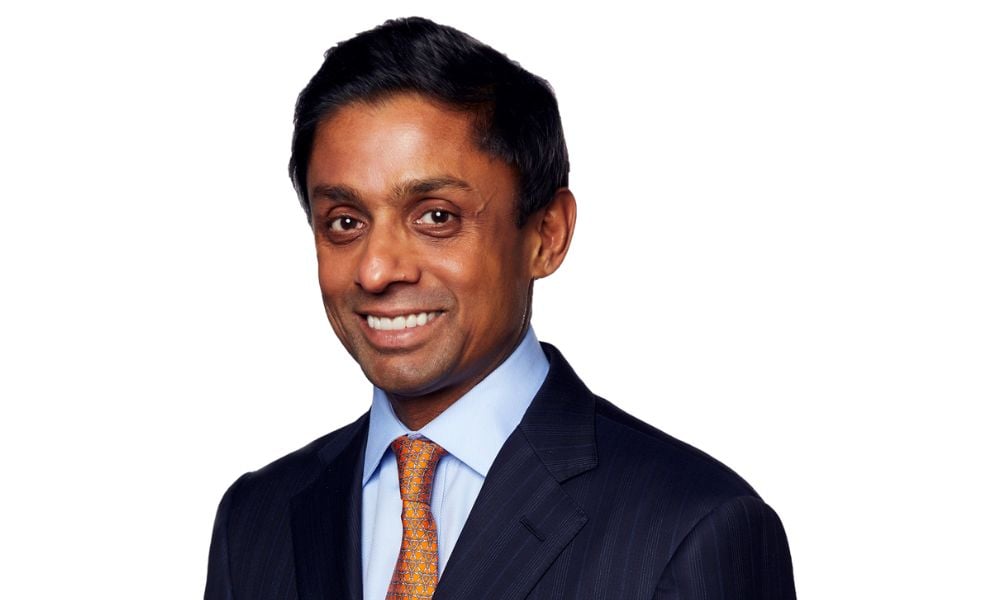Mackenzie's head of global quantitative equity breaks down dynamics across worldwide markets that asset managers should be aware of

Two of the best performing stocks Mackenzie investments’ global quantitative equity team hold are infrastructure plays in India. Rural Electrification Corporation and Power Finance Corporation are both up over 300 per cent in the past 12 months as the world’s most populous country aggressively electrifies its rural areas. While that team’s reach is truly global — spanning North America, developed markets, and emerging markets like India — those two stocks indicate an outlook that factors in macro trends, micro opportunities, and market-specific outlooks that asset managers need to be aware of.
Arup Datta, head of global quantitative equity at Mackenzie, explained how his team identifies opportunities like Indian infrastructure. He took a tour of global markets, highlighting core dynamics at work across key markets and offering assessments of the risks and opportunities now before them. While he is keenly aware of market specific tailwinds and headwinds, he stressed that he is sanguine on equity markets overall. While Datta’s outlook is global, his view very much begins with the US market.
“One thing I’ve learned over my 31 years is that the US has very resilient markets, it has provided the best risk-adjusted returns in the past 20-30 years, and I don’t see that changing,” Datta says. “I see that as a stable area of growth. All the growth leaders of the world are US-based…Maybe there’s a valuation premium to these names, but they’re firing on all cylinders. US valuations are expensive, but there’s a reason for that.”
While Datta views the US market positively, he thinks there is some concentration risk now in the so-called Magnificent Seven. While he notes that these companies tend to have thriving businesses and don’t face significant anti-trust risk, he thinks there is now opportunity for other smaller-cap US companies to catch up with last year’s market leaders.
While US markets have been led, and may continue to be leg, by large or mega-cap companies, Datta sees emerging markets driven by a different dynamic. Last year, he points out, the MSCI Emerging Market large-cap index underperformed the MSCI Emerging Market Small-Cap index significantly. That is largely because the large-cap index has a much heavier weighting in China.
Chinese equities have been beaten up recently and Datta describes the country as “maybe the toughest” major market in the world right now. Nevertheless he sees China as a long-term contrarian value play. While many investors liken Chinese equities today to Japanese equities in the 1990s, Datta notes that Chinese stocks are nowhere near the valuation multiples their Japanese equivalents hit in that time. The value in Chinese stocks, however, may only be realized by a catalyst and with ratcheting tensions between China and the West during a US election year, Datta doesn’t see such a catalyst coming anytime soon.
While China has struggled, after decades as the emerging market darling, both Japan and South Korea have performed with strength on the back of changing corporate governance outlooks in both countries. Japan, Datta says, is further along on this journey and was one of the best performing global equity markets in 2023. Japanese companies and regulators have pushed to become more shareholder friendly and investors have responded positively. South Korea has not made meaningful changes to the corporate structures of chaebols — large, family-run, conglomerates — but there is now noise about implementing stronger corporate governance structures. Investors have responded to that noise very positively. Both Korea and Japan have also been beneficiaries of investor flight from China.
As emerging market investors moved away from China, India has probably been the largest beneficiary. The Indian government under Narendra Modi has been somewhat controversial in terms of human rights and press freedom, but it can’t be argued that the country’s economic outlook has improved. Trends like rural infrastructure improvements continue and a country once known for its Byzantine bureaucracy has been noted as an increasingly easy place to do business. The largest risk for India right now is that Modi loses the next election. However, Datta sees that as incredibly unlikely given the fractured state of the opposition.
When looking at India, Datta notes that the previous bellwether stocks like Infosys and HDFC bank have given up leadership to smaller names like Power Finance. That comes with an economy transitioning to a wider array of growth drivers and greater corporate diversification.
While these trends play out Datta is also looking for the next wave of opportunity, and while he doesn’t see another story like the 50 per cent down Brazilian stock market of a few years ago, he thinks asset managers can capture some upside by looking carefully at both emerging and established markets with a view to how they interconnect.



